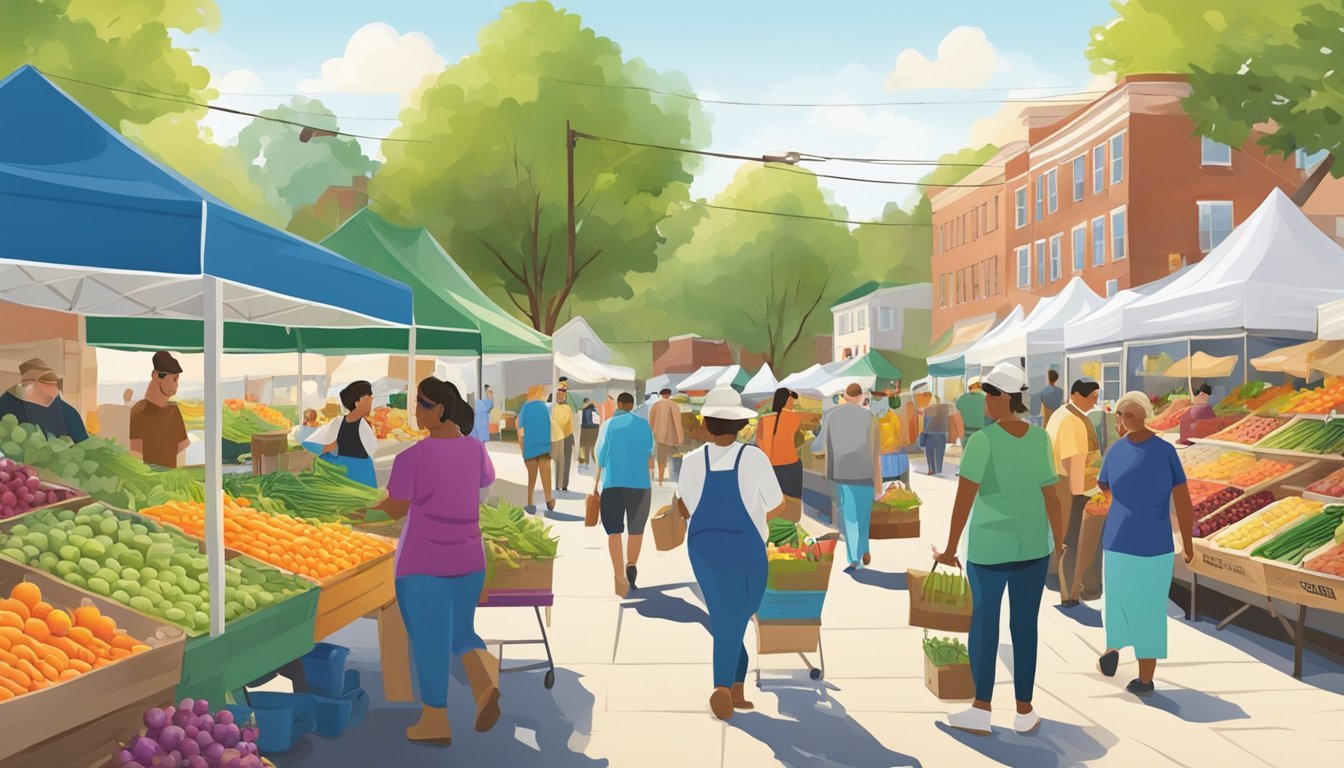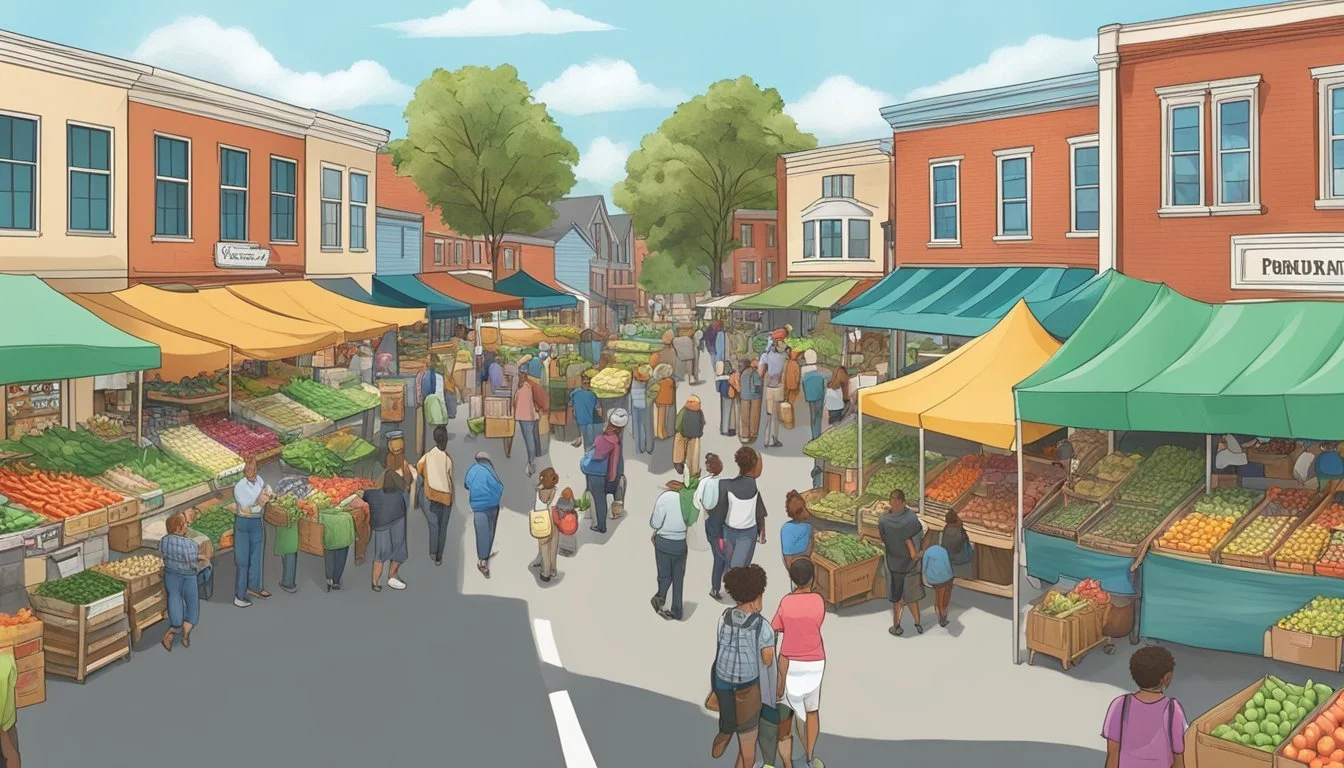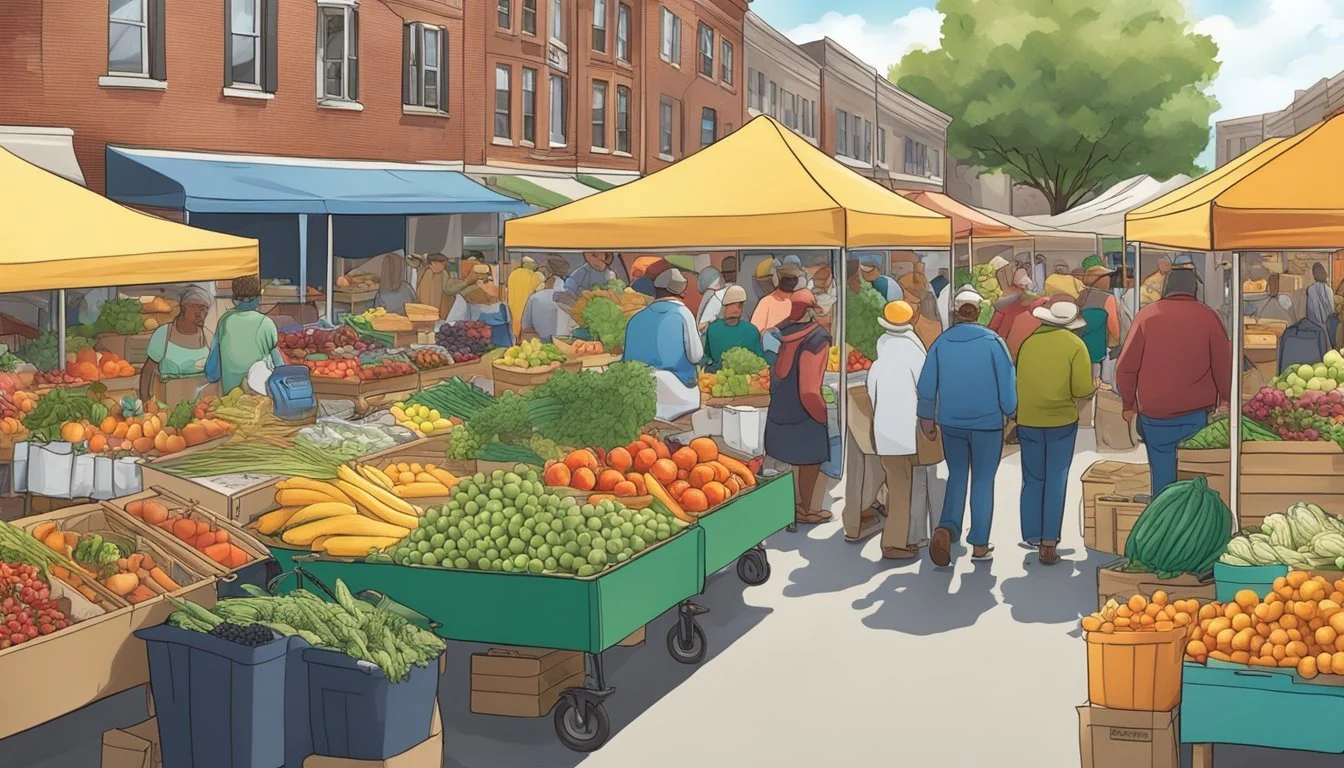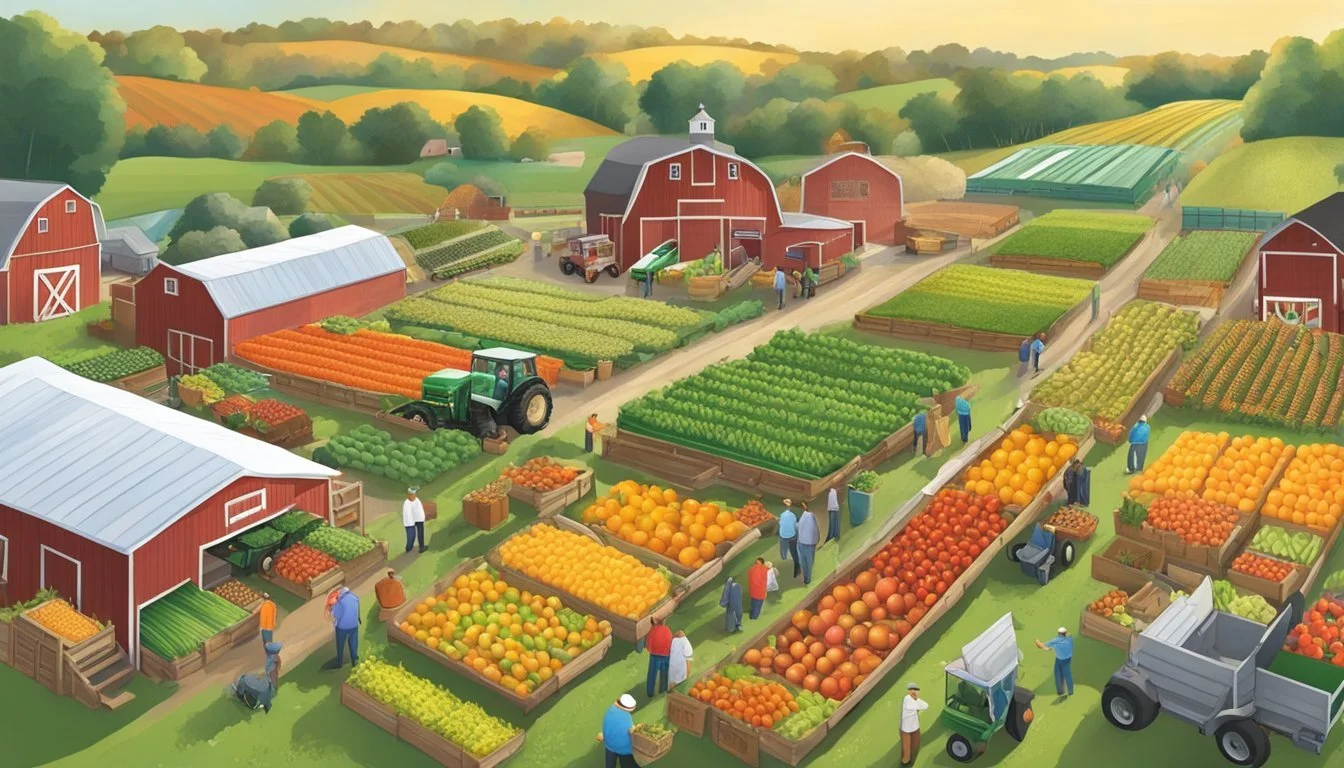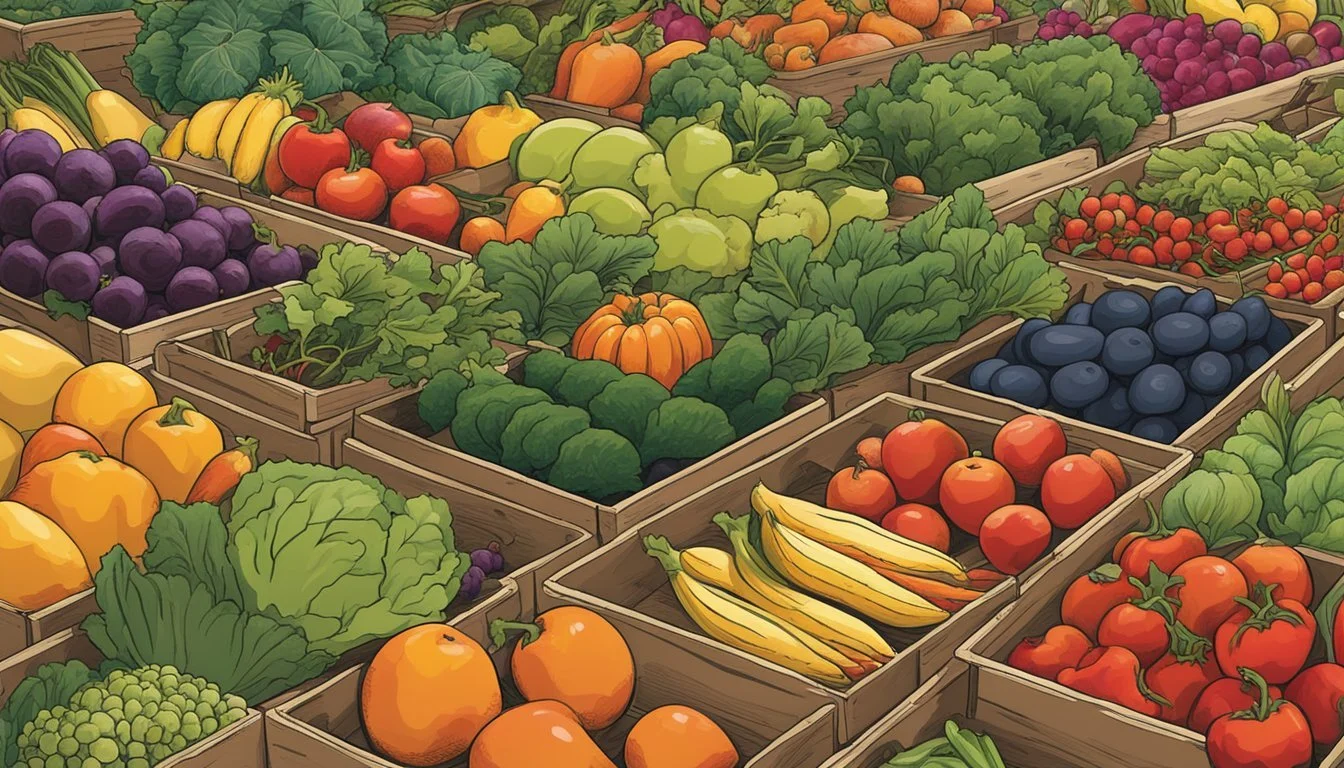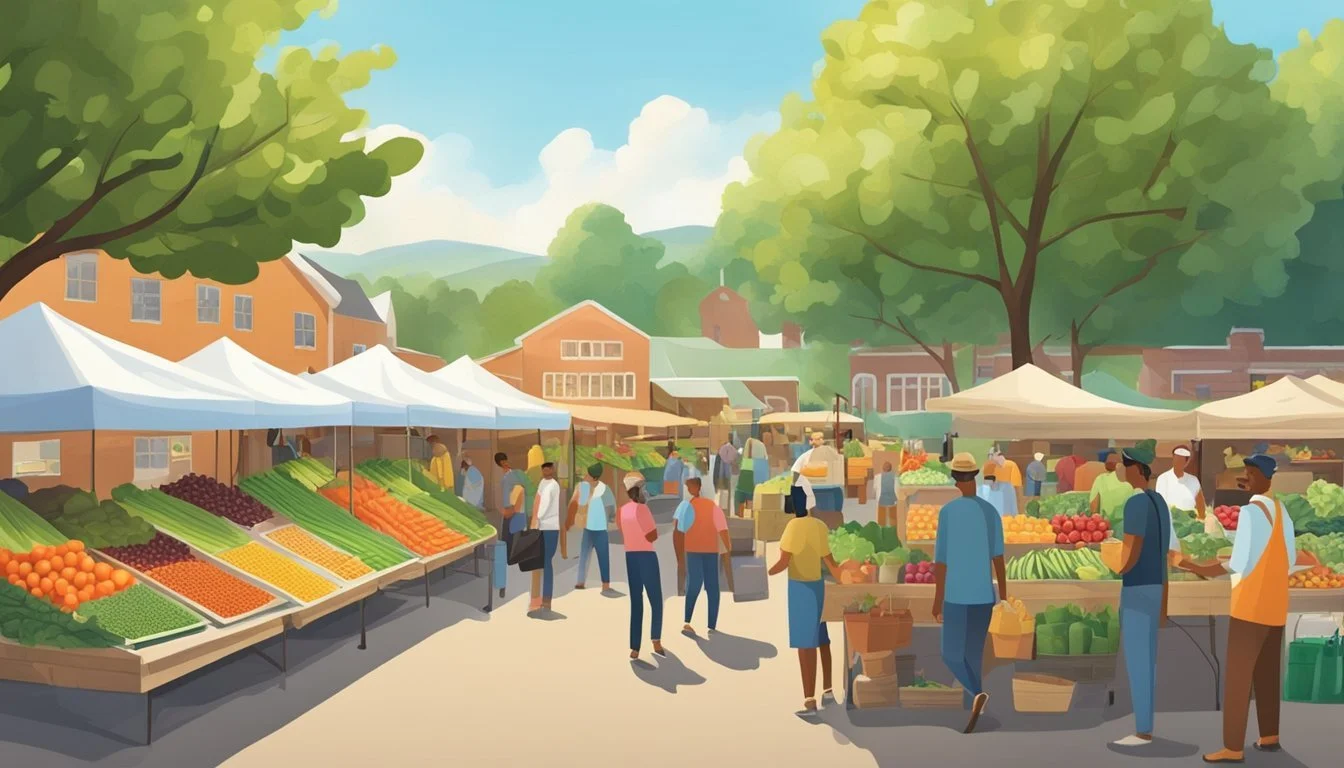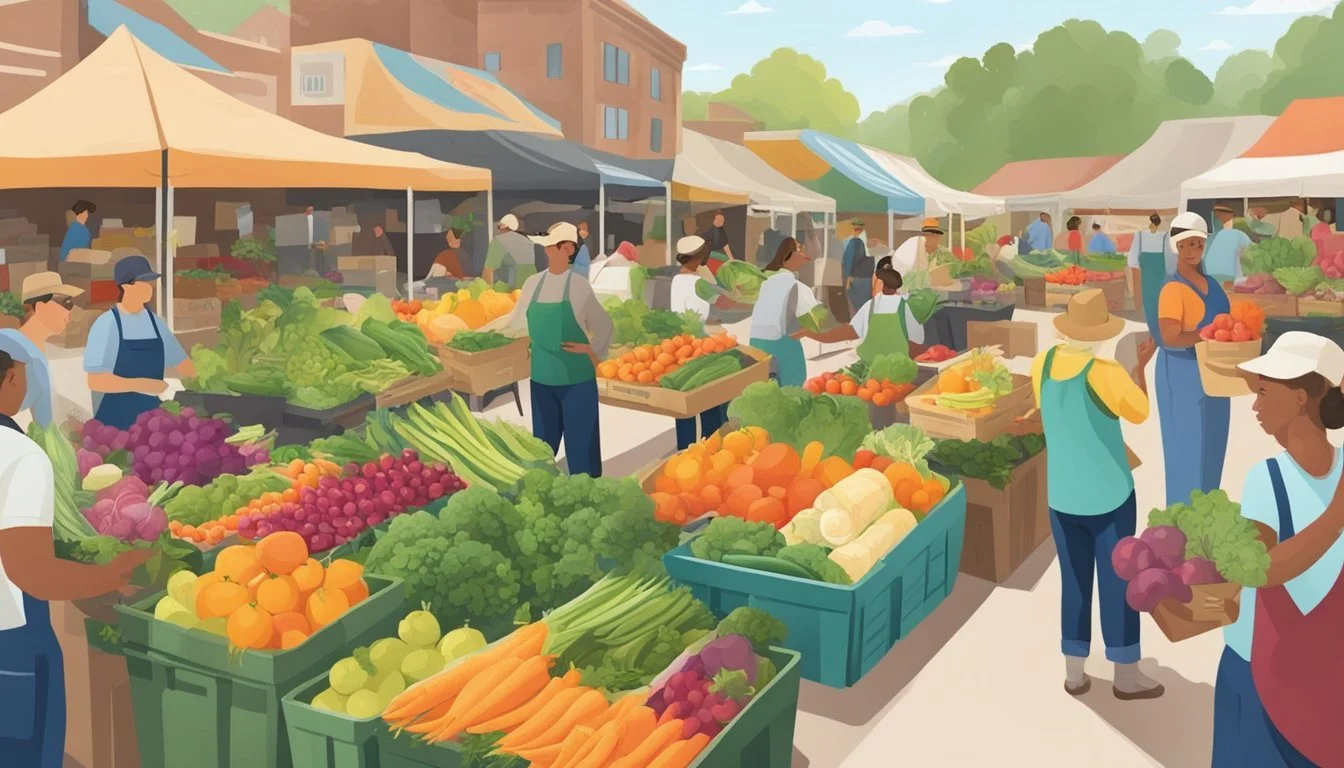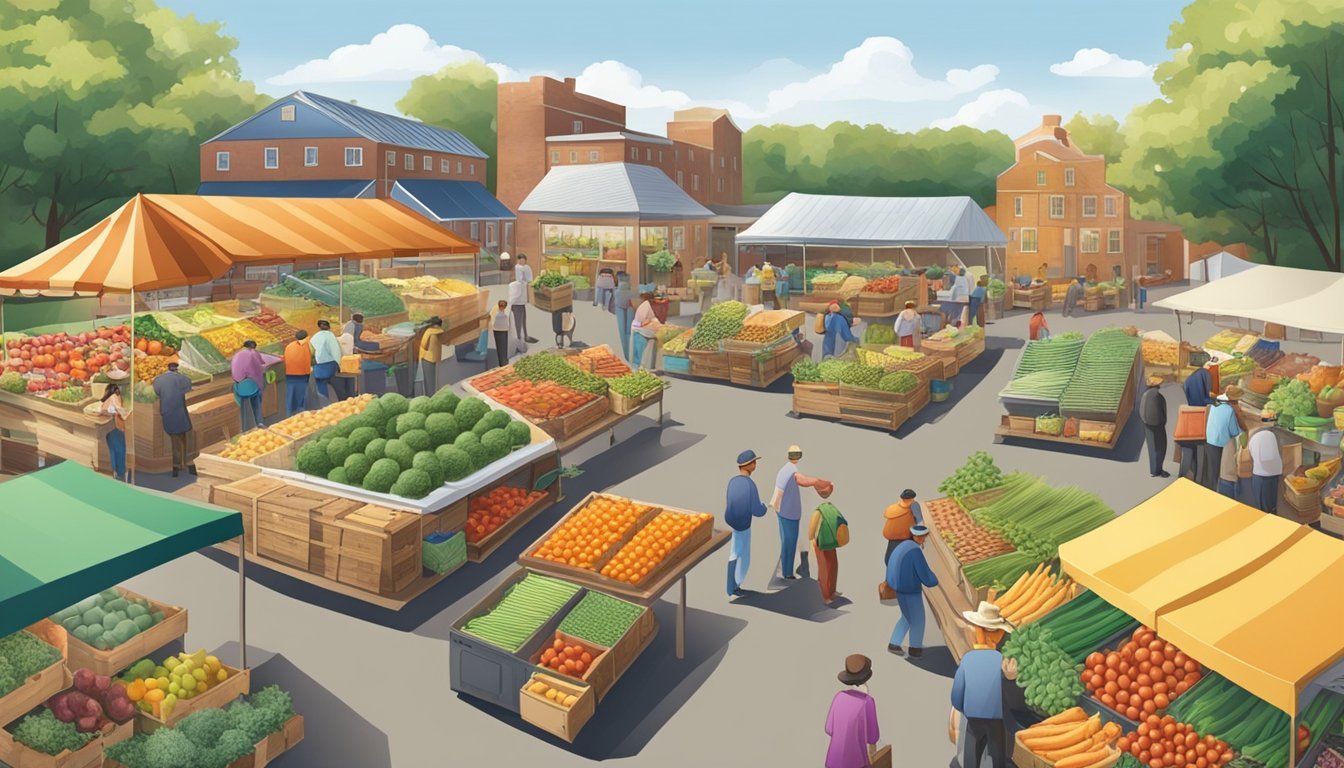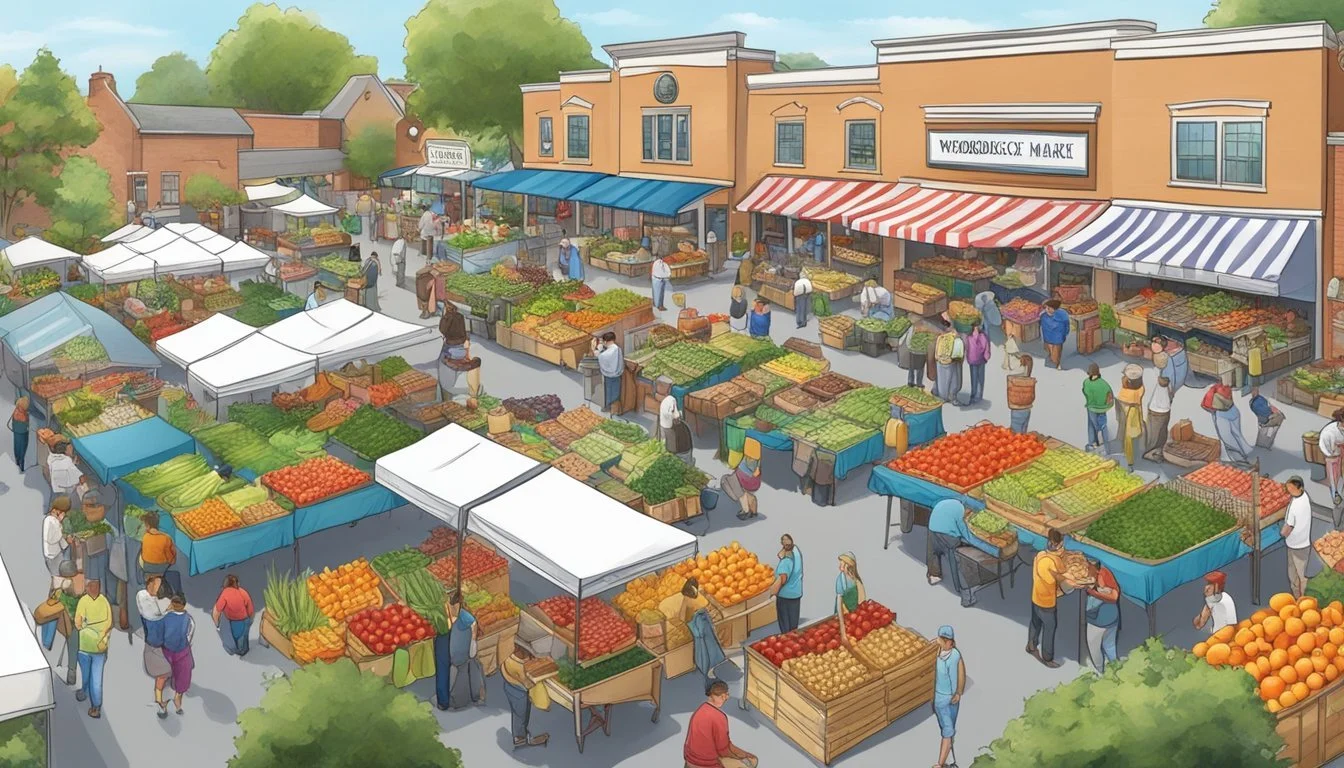Community Supported Agriculture (CSA) in Woodbridge, NJ
A Guide to Local Produce and Farm Partnerships
Community Supported Agriculture (CSA) programs have taken root in Woodbridge, NJ, offering residents an opportunity to support local agriculture and enjoy fresh produce. These programs are a partnership between the community and local farms, where consumers pre-purchase a share of the season's harvest. In return, they receive a regular supply of fresh fruits, vegetables, and other farm products throughout the farming season. This model not only guarantees market for farmers but also introduces consumers to the freshest, locally grown foods.
Honey Brook Organic Farm, known as the oldest and largest certified organic fruit and vegetable CSA in the Garden State, stands as a testament to the thriving CSA community in New Jersey. CSA participants in Woodbridge have the chance to indulge in a variety of organic produce that is noted for its superior taste and quality. Members not only get their share of the harvest but also engage in a richer relationship with their food sources, understanding where and how their produce is grown.
In Woodbridge, apart from Honey Brook, several other CSA programs are available. These can range in offerings from pick-your-own fruit and vegetables to an assortment of other farm products like local honey, homemade pastries, and even artisanal treats like ice cream and fudge. By supporting a CSA, Woodbridge residents actively contribute to sustainable agricultural practices and learn about seasonality and diversity of crops, while farmers receive upfront support for their seasonal operations.
Understanding CSA
Community Supported Agriculture (CSA) represents a model that connects local farmers directly with consumers, fostering a symbiotic relationship where the provision of fresh, often organic, produce aligns with sustainable agricultural practices.
History and Principles of CSA
CSA began as a concept in the early 1960s in Germany, Switzerland, and Japan because of concerns about food safety and the urbanization of agricultural land. It arrived in the United States by the 1980s. The core philosophy of CSA centers around shared risks and rewards between farmers and members. In this model, community members financially support a local farmer at the beginning of the growing season. This upfront investment allows the farmer to plan for the season, purchase new seed, make repairs, etc., without the burden of upfront costs.
Key Principles:
Community Involvement: Shareholders often have the opportunity to visit the farm and assist with harvest.
Sustainability: CSA encourages sustainable farming methods that minimize environmental impact.
Local Economy: It supports local agriculture and keeps the financial benefits within the community.
Benefits of Joining a CSA
Joining a CSA has numerous advantages for both the farmer and the members. Consumers receive regular deliveries or pickups of fresh produce, often harvested within a day of delivery, which surpasses the freshness of most supermarket offerings. This produce is typically grown organically, reducing consumers' exposure to synthetic pesticides and fertilizers.
Advantages for the consumer include:
Freshness and Taste: Direct access to the freshest seasonal produce.
Health Benefits: Consumption of a variety of fresh, organically grown fruits and vegetables.
Education: Learning about sustainable agriculture and seasonal eating.
Advantages for the farmer:
Financial Security: Pre-season capital helps with the farm's cash flow.
Guaranteed Market: A predetermined customer base for their harvest.
CSA creates a valued connection between community members and the food they eat, while also reinforcing the local food system and promoting sustainable farming practices.
CSA Options in Woodbridge, NJ
Woodbridge residents have access to a range of CSA subscriptions offering organic, locally-sourced produce. These options cater to different household sizes and preferences.
Types of Shares and Subscriptions
Half Share: Suitable for individuals or small families, a half share typically provides a weekly box of seasonal produce every other week. Prices can range from $350 to $400.
Full Share: Ideal for larger households or vegetarians, a full share offers weekly boxes with enough produce to meet the needs of several people and is priced between **$600 and $650.
Subscribers often have the option to pay in installments, easing the upfront financial commitment. Additionally, some farms may offer discounts for early sign-ups or volunteer work.
Seasonal Availability
Spring: Fresh greens, herbs, and early vegetables mark the start of the CSA season.
Summer: This is the time for a rich variety of fruits and vegetables including tomatoes, melons, and berries.
Winter: Though more limited, winter shares may still be available, focusing on root crops and hardy greens.
Some farms offer market-style pickups, where shareholders choose from an array of produce, much like a farmers market. Selection can vary weekly based on what is in season.
Local CSA Farms
Woodbridge, NJ, residents have access to several local farms engaging in Community Supported Agriculture (CSA), fostering a direct connection between consumers and local agriculture.
Honey Brook Organic Farm
Located in Pennington, NJ, Honey Brook Organic Farm is renowned for being the earliest established and most extensive certified organic fruit, herb, vegetable, and flower CSA farm in New Jersey, initiating its operations in 1991. The farm offers a range of organic products, delivering exceptional quality and taste that is revered by its community members.
Genesis Farm
Genesis Farm offers its CSA program with year-round availability, alongside seasonal shares that cater to different customer preferences. Situated in Blairstown, NJ, with additional satellite locations, Genesis Farm allows easy access for shareholders to pick up their fresh produce, spanning from bi-weekly to weekly distribution options.
Alstede Farms
Alstede Farms, located in Chester, NJ, provides a vast assortment of produce through their CSA program, which is backed by a commitment to sustainable and organic farming practices. They offer a flexible CSA membership, allowing residents to enjoy fresh, locally-grown fruits and vegetables while supporting local farming efforts.
Dreyer Farms
Dreyer Farms in Scotch Plains, NJ, is another prominent local CSA provider. Their dedication to sustainable agriculture and community engagement is evident in their fresh, seasonally available produce. Dreyer Farms presents a connection to authentic farm life for their CSA shareholders, who receive a variety of crops grown with meticulous care.
What to Expect from Your CSA
When joining a Community Supported Agriculture (CSA) program in Woodbridge, NJ, subscribers can anticipate a season filled with a diverse range of locally grown produce and additional farm products. The content of CSA shares tends to vary depending on the time of the season and the farm's production.
Variety of Produce
A CSA typically provides an array of vegetables and fruits that change with the seasons. Members might receive:
Spring: lettuce, spinach, radishes, and peas.
Summer: tomatoes, peppers, corn, and cucumbers.
Fall: pumpkins, squash, carrots, and apples.
Subscribers may also find flowers and herbs adding additional variety to their shares. It is important for members to anticipate fluctuations and enjoy the seasonality of their food.
Additional Products
Beyond produce, many CSAs offer add-on options that may include:
Honey: a sweet bonus from the farm's own beehives.
Eggs: freshly laid and from chickens raised on-site or from local producers.
Cheese and meat: artisanal and farmstead cheeses, with meat options potentially including beef, poultry, and pork.
Baked goods: such as breads and pastries, sometimes available depending on the farm or partnerships with local bakeries.
Subscribers should check with their CSA for availability and if there are additional costs for these items.
Community and Environmental Impact
In Woodbridge, NJ, Community Supported Agriculture (CSA) plays a pivotal role in bolstering local economies and promoting environmental stewardship through its support for small-scale farming and adoption of eco-friendly practices.
Supporting Local Farmers
Woodbridge's CSA programs directly benefit local farms by providing a consistent marketplace for their products. This not only helps sustain the livelihoods of farmers but also contributes to preserving the agricultural landscape of New Jersey. The Jersey Fresh program is a testament to the state's commitment to locally sourced produce, which is supported by CSA memberships.
Advantages for Farmers:
Steady income
Pre-season capital for farm expenses
Reduced marketing costs
Stronger bond with community
Sustainable Practices and Organic Farming
CSAs in Woodbridge emphasize sustainable farming methods, which are kinder to the environment and align with the standards set by the Northeast Organic Farming Association of New Jersey. Be it through crop rotation, the use of non-chemical fertilizers, or integrated pest management, these practices reduce the ecological footprint of farming and foster organic farming techniques.
Environmental Benefits:
Improved soil health
Reduced reliance on synthetic chemicals
Conservation of water resources
By engaging in CSA, Woodbridge residents are actively participating in a food system that values environmental health and community resilience.
Getting Involved
For those interested in Woodbridge, NJ's CSA programs, getting involved extends beyond purchasing shares. Participants can engage through volunteering and U-pick options, as well as fostering personal relationships with local farmers.
Volunteering and U-Pick Options
CSA memberships often provide opportunities for members to volunteer at the farm, gaining hands-on experience with the agricultural process. Members might assist with planting, weeding, or harvesting, which not only supports the farm’s operations but also deepens their understanding of where their food comes from.
U-pick options are a popular aspect of many CSAs. These allow members to visit the farm and pick their own produce during designated times. This activity can range from selecting herbs and vegetables to picking fruits and flowers, depending on the season and the farm’s offerings.
Building a Personal Relationship with Farmers
Participating in a CSA creates an avenue for members to build personal relationships with farmers. By directly engaging with the people who grow their food, members can ask questions, offer feedback, and gain insights into sustainable farming practices.
These relationships can also lead to a more tailored CSA experience as farmers become familiar with the preferences and special interests of their members. As such relationships strengthen, so does the sense of community around the shared goal of supporting local agriculture.
Financial and Practical Considerations
In Woodbridge, NJ, individuals considering joining a Community Supported Agriculture (CSA) program must navigate the financial commitments and assess potential risks. It is important to understand the cost structure and payment options, alongside the inherent risks associated with agricultural ventures.
Understanding Costs and Payment Options
A CSA typically requires members to pay for a season’s worth of produce upfront. This payment secures a share of the farm's harvest. In Woodbridge, prices for a bi-weekly CSA share might range from $350 to $400, while a full share could cost between $600 to $650. Some CSAs offer payment flexibilities such as:
Payment Plans: The option to pay in installments, making it more manageable for members to budget for their share.
Discounts: Early-bird specials or reduced prices for volunteer work at the farm.
Membership fees might cover the entire growing season, and members should inquire about the CSA's refund or cancellation policy.
Assessing the Risks
While supporting local agriculture through a CSA comes with benefits, members should also weigh the risks:
Weather Dependence: Crop yields can be affected by unpredictable weather, potentially resulting in a lower quantity or variety of produce.
No Guarantee of Delivery: CSA members share in the farm's success and failures; there is no assurance of produce delivery if unforeseen events impact crops.
It is advisable for individuals to ask CSA operators how they mitigate such risks, and whether there is any form of compensation or substitution if crop failures occur.
Local and Seasonal Recipes
Community Supported Agriculture (CSA) programs in Woodbridge, NJ, offer a great opportunity for residents to enjoy Jersey Fresh produce. Through these programs, locals can access a variety of seasonal vegetables, fruits, and fresh herbs that inspire an array of local and seasonal recipes.
Cooking with Seasonal Produce
Woodbridge's CSA programs flourish with Jersey Fresh Produce throughout the various seasons, allowing community members to experience the freshness and flavor of locally-sourced ingredients. Chefs and home cooks alike revel in the diverse selection that might include crisp asparagus in the spring, plump berries in the summer, versatile squash in the fall, and hearty root vegetables during the colder months.
Here are a few ways to incorporate CSA produce into your cooking repertoire:
Spring: A vibrant salad using mixed greens, snap peas, and radishes, topped with a lemon-herb vinaigrette, showcases spring's freshness.
Summer: A chilled fruit soup featuring a blend of Jersey peaches and blueberries offers a refreshing treat.
Autumn: Roasting a medley of butternut squash, carrots, and parsnips brings out the sweetness and depth of fall's harvest.
Winter: Comforting soups and stews with kale, potatoes, and turnips provide warmth and nourishment through the chilly months.
By using these seasonal ingredients, your meals not only gain in quality and taste but also support sustainable agriculture and the local economy.
Additional Resources
In the pursuit of supporting local agriculture and accessing fresh, local produce, residents of Woodbridge, NJ, have a variety of resources at their fingertips. From educational materials to comprehensive online directories, individuals can enhance their understanding of CSA programs while making informed choices about food sourcing.
Educational Materials and Community Events
Local organizations often hold events and provide materials that educate the public about the benefits and operations of CSA programs. Edible Jersey, a publication dedicated to New Jersey's food scene, includes articles and guides that cover local CSA programs. Their content can offer insights into how CSAs impact both local farmers and communities. Additionally, Jersey Fresh, an awareness program promoting New Jersey agriculture, might host community events that allow attendees to meet CSA farmers and learn directly about sustainable agriculture practices in the Garden State.
Websites and Local Networks
For those seeking to connect with CSA options in Woodbridge, New Jersey, LocalHarvest.org stands out as a premier online resource. Here, individuals can search for local CSA programs by simply entering a zip code:
LocalHarvest.org: A directory of CSA farms where residents can find Honey Brook Organic Farm, the oldest and largest certified organic CSA farm in New Jersey, and others that deliver to Woodbridge.
Furthermore, through Jersey Fresh's resources, potential CSA members can discover a variety of programs across the state, check seasonal planting and harvest times, and even get pricing for different CSA shares. Jersey Fresh provides a wealth of information, including how to join a CSA and the benefits of participating in one.
By using these resources, residents of Woodbridge and the surrounding areas gain the ability to make educated decisions in support of local farmers and enjoy the bounty of New Jersey's agricultural offerings.
Conclusion
In Woodbridge, NJ, community-supported agriculture has proven to be an effective means of connecting consumers with local farms. Honey Brook Organic Farm, established in 1991, is a testament to the longstanding success of CSA programs in the region – providing a wide array of organic produce to its members.
Members of CSAs can expect to receive fresh, seasonal produce while supporting the local economy and sustainable farming practices. Typically, shares in a CSA program vary in cost, but one might anticipate:
Bi-weekly CSA Share: $350-400
Full CSA Share: $600-650
These programs not only offer an opportunity for consumers to access high-quality, nutritious food but also allow them to foster a partnership with local farmers. As a result, there is a mutual benefit: farmers gain an essential early-season cash flow, and consumers secure their share of the harvest.
Throughout the pandemic, the relevance of CSA programs has only grown, illustrating the model's resilience and ability to provide for communities in challenging times. Committing to a CSA program should be seen as a step forward in building a robust and health-conscious community that values sustainability and the local food supply chain.

